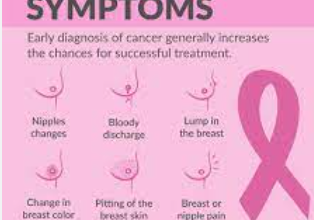Common Pesticides in Food Reducing Sperm Count Worldwide Study Says

Common Pesticides in Food: Reducing Sperm Count Worldwide Study Says

In the fast-paced world of modern agriculture, the use of pesticides has become a common practice to protect crops from pests and ensure a bountiful harvest. However, a recent global study has raised concerns about the impact of common pesticides on sperm count, highlighting a potential threat to male fertility worldwide.
Introduction
The intricate relationship between pesticides and our food supply has long been a topic of discussion. As we delve into the details of this study, it’s essential to understand the prevalence of pesticides in the food we consume and their potential repercussions on male reproductive health.
Understanding Common Pesticides
Definition and Types
Pesticides, broadly classified as insecticides, herbicides, and fungicides, play a pivotal role in safeguarding crops from various threats. These chemical substances are systematically used in agriculture, contributing to the production of abundant and visually appealing fruits and vegetables.
Prevalence in the Food Supply Chain
From farm to table, the journey of our food involves exposure to pesticides at different stages. The residues left on fruits, vegetables, and grains post-harvest make their way into our daily meals, raising questions about the long-term consequences of such exposure.
The Role of Pesticides in Crop Protection
While pesticides serve a crucial purpose in protecting crops, the collateral damage on human health, particularly male fertility, demands a closer examination. Balancing the benefits of crop protection with the potential risks to consumers is a complex challenge.
The Global Study on Sperm Count
Overview
Conducted across continents, the global study aimed to investigate the correlation between pesticide exposure through food and declining sperm count in men. The findings shed light on a concerning trend that necessitates immediate attention.
Key Findings
The study’s revelations were alarming, indicating a significant reduction in sperm count among populations exposed to higher levels of common pesticides. This revelation underscores the need for a comprehensive understanding of the impact of pesticides on male reproductive health.
Impact on Male Fertility
In-depth analysis reveals the intricate ways in which pesticides affect sperm count. The disruption of hormonal balance and damage to reproductive organs are key contributors to the decline in male fertility. Beyond the immediate concerns, the study also points to potential long-term health implications associated with reduced sperm count.
Regulatory Measures and Awareness
Existing Regulations
While regulations exist to control the use of pesticides in agriculture, the enforcement and effectiveness of these measures vary globally. Strengthening regulatory frameworks and ensuring their consistent implementation is crucial to mitigating the risks posed by excessive pesticide use.
The Need for Increased Awareness
Creating awareness among consumers about the potential risks associated with pesticide-laden food is essential. Educating individuals on the importance of making informed choices and supporting sustainable agricultural practices can contribute to a healthier food supply.

Alternatives to Pesticide-Heavy Agriculture
Introduction to Organic Farming Practices
Organic farming, with its focus on natural methods of pest control, presents a viable alternative to pesticide-heavy agriculture. Embracing organic practices promotes environmental sustainability and reduces the risk of pesticide exposure in the food chain.
Sustainable Alternatives for Crop Protection
Innovative approaches, such as integrated pest management and the use of biopesticides, offer sustainable alternatives for crop protection. These methods aim to minimize environmental impact while ensuring the health and fertility of consumers.
Case Studies
Regions Affected
Examining specific regions experiencing the adverse effects of pesticide-related sperm count issues provides valuable insights. Identifying hotspots enables targeted interventions and highlights the urgency of addressing this global concern.
Success Stories
Communities adopting pesticide-free practices showcase success stories worth emulating. These examples demonstrate the feasibility of transitioning to sustainable agriculture and encourage broader adoption of environmentally friendly practices.
Future Outlook
Ongoing Research
The scientific community’s ongoing research in this field is promising. Continued efforts to understand the intricate relationship between pesticides and male fertility will contribute to evidence-based policies and practices.
Potential Solutions and Advancements
As we look to the future, advancements in technology and sustainable agriculture hold the key to mitigating the adverse effects of pesticides on sperm count. Collaborative efforts between researchers, policymakers, and farmers are essential to implementing effective solutions.
Conclusion
In conclusion, the global study on common pesticides in food reducing sperm count raises significant concerns about the impact of modern agricultural practices on male fertility. It is imperative that we collectively address this issue by promoting sustainable agriculture, raising awareness, and advocating for stringent regulations.
FAQs
- Can washing fruits and vegetables reduce pesticide exposure? Regularly washing fruits and vegetables under running water can help reduce pesticide residues, but it may not eliminate them entirely. Consider opting for organic produce when possible.
- Are all pesticides harmful to sperm count? While the study highlights the impact of common pesticides, not all pesticides have the same effect. The type and amount of pesticide exposure play a crucial role in determining its impact on sperm count.
- How can individuals support pesticide-free agriculture? Choosing organic products, supporting local farmers practicing sustainable agriculture, and advocating for stricter pesticide regulations are effective ways individuals can contribute to pesticide-free agriculture.
- What steps are being taken globally to address this issue? International organizations, governments, and advocacy groups are working together to address the issue through research, policy development, and promoting sustainable agricultural practices.
- Are there any specific foods known to have high pesticide levels? Certain fruits and vegetables, often referred to as the “Dirty Dozen,” are known to have higher pesticide residues. Apples, strawberries, and spinach are examples. Opting for organic options for these foods can be a wise choice.




